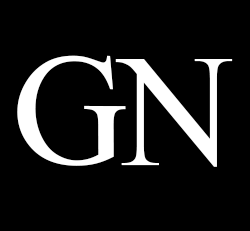|
Call (608) 831-3168 For a Quote! |
|
Insurance Glossary
Actual Cash Value is a method to value an insured property. It is calculated by deducting depreciation from the replacement cost. ACV= Replacement Cost-Depreciation Replacement Cost: "Current market price of a particular product or property". For example, a building was priced at $50000 5 years ago and currently it is priced at $55000. Hence, the replacement cost is $55000. Depreciation: Decrease in value of property due to its use or obsolescence. There are two methods to calculate depreciation.
Depreciation=Net Book Value (NBV) * Depreciation Rate Example: NBV= $1000 Depreciation= $1000 * 10% Depreciation= $100 Additional insured also known as additional named insured; a person or organization that is protected under an insurance policy which is originally purchased by another person or organization. Additional insured normally applies within property insurance or liability insurance, but it is a part or element of other insurance policies as well. Normally it applies where the purchaser wants to provide coverage to additional people or parties to protect them from a risk which may be caused by the purchaser's or named insured's conducts. Additional insured also known as additional named insured or named insured, is a person or organization that is protected under an insurance policy which is originally purchased by another person or organization. Additional insured normally applies within property insurance or liability insurance, but it is a part or element of other insurance policies as well. Normally it applies where the purchaser wants to provide coverage to additional people or parties to protect them from a risk which may be caused by the purchaser's or named insured's conducts. An additional named insured normally gets this status through an endorsement on the insurance policy. It either identifies the additional insured by a general description or by name. Adjuster or Claims adjuster is a person or organization responsible to investigate the witnesses and claimant, evaluation and quantification of an insured claim, checking hospital records, and consulting with police to determine or evaluate the extent of company's liability. Other than investigating the insurance claims, an adjuster is also responsible for recommending an effective settlement. Agent is a person or an organization that acts on behalf of another party, client, principal, or organization to perform a specific activity. Agents have a vast knowledge and experience in their relevant field. They are specialists in their work and charge reasonable fee to perform their task. They take full responsibility for customer satisfaction in return for a desired fee which may vary from agent to agent. Insurance agents are specialists and well experienced in insurance industry. Their motto is to provide best possible and economical insurance policies to the insured to gain popularity and new customers. An amendment to an insurance policy is addition to, deletion from, or change in the terms and conditions of the policy. For example, changes in the coverage or deductible, increases or decreases in the rates of premium. Both parties (i.e. the insurer and the insured) must agree to the amendment. Only then the amendment will become integral part of the policy. Anything owned by a person or company from which future economic benefit is expected. Assets are considered as economic resources of a person or company. There are two classes of assets, tangible and intangible. Tangible Assets: These are physical assets and can be touched. These assets are used to generate cash. For example, machinery, building, finished products etc. Intangible Assets: These are nonphysical assets that provide a company with good position in the market place. This results in more business for the company. For example, goodwill, patents, copyrights, or trademarks. Auto insurance is a contract between insurance provider and policy holder, whereby the insurance provider guarantees to pay for certain losses in return for payments of premiums. It provides protection from losses resulting from owning and/or operating autos such as cars, trucks, and other vehicles. In many states auto insurance is required by statute. Auto liability insurance provides you protection against the damages you cause to others up to a certain limit. It covers bodily injury liability and property damage liability. Bodily injury liability pays for medical bills and lost wages of others. Property damage liability pays for the cost to repair or to replace the property you have damaged. Auto liability insurance also pays for your legal bills. Automobile liability coverage protects you in the event that you cause a bodily injury or property damage to someone by your automobile. When an accident occurs, the party at fault is required to pay damages to the injured party. If the party at fault is protected by automobile liability coverage, the insurance provider will be responsible to pay on behalf of the insured up to the policies set limits. Beneficiary is a person or entity who is to receive benefits from an insurance policy. In cases of property insurance, auto insurance, and other similar insurance policies, the policyholder if alive, otherwise the spouse if alive, otherwise legal heirs are the beneficiaries. Minors can be beneficiaries but proceeds are not transferred to them until a trustee or a court approves a guardian. A Binder is an immediate but temporary insurance coverage provided for a limited time. A Binder covers the insured temporarily until a formal policy is issued. Mostly, insurance companies issue binders before a formal policy is issued. You would need an insurance binder for almost every type of insurance ranging from house insurance, life insurance, health insurance, to auto insurance etc. Example: Alex has been provided with a 10 days insurance binder until his past insurance history could be researched. During this period, Alex will receive same rights and coverage as one receives with a regular insurance policy. Bodily injury coverage covers other people's bodily injuries or death for which you are responsible in a traffic accident. Claims for bodily injury may be for medical bills, loss of income or pain and suffering. It also provides for legal costs if other party in the accident files a lawsuit against you. It covers damages caused by you to others only. It does NOT cover you or other people on your policy. An insurance bond, also known as investment bond, is offered by life insurance companies, and is a single premium life insurance policy. Investment bonds are used as a safe and long term investment in different countries including U.K and U.S.A. Bond holders are eligible to receive their earnings tax free provided they hold their bonds for more than 10 years without making any withdrawals. An insurance broker is an independent insurance agent who searches for the best insurance policies for his/her customers. Insurance brokers normally work with different insurance companies to find suitable and economical policies for his/her clients. Brokers structure policies and settle insurance claims. They have higher responsibility than an insurance agent. They are responsible for thorough examination of the client's business and provide best possible coverage. Most of the states require the brokers to be licensed, which involves passing an insurance exam. Insurance brokers normally work on a commission basis. Commission depends on the type of coverage sold. Insurance agents work as intermediaries between the insured and insurance company. They normally work with one insurance company. They have an administrative liability towards their clients which involves accurate and timely processing of forms and relevant paper work. They are not responsible for thorough examination of client's business, but they can do it for better career and exposure in the insurance industry. Agents also work on a commission basis. Builders risk insurance is an insurance which provides protection against damage to buildings or other type of structure while they are under construction. Normally the owner of the building buys this policy, but the construction contractor may buy it if it is mutually agreed in the construction contract. Most of the lenders don't provide finance unless this coverage is in place. It protects against losses from fire, wind damage, terrorism, and physical damages. Many other types of losses like earthquake, flood, or theft may also be included in the policy, if needed. Business pursuit's endorsement is a homeowner's policy endorsement that provides liability coverage for a business conducted away from the residence premises. This endorsement provides coverage for an insured person who is employee of somebody else. It does not apply to the business owned or controlled by the insured individual. Captive agent is an agent who works solely for a single insurance company. He/She only promotes coverage offered by the company he/she is associated with. A captive agent may be associated with an insurance company as a permanent employee, or may choose to work independently. In both cases, he/she sells offerings of one insurance company. A captive agent may work on commission, fixed pay, or a combination of both. A carrier is an enterprise that offers insurance policies to the public. It issues and assumes the risks of an insurance policy. It either sells directly to the individuals or through another source such as an employees benefit plan. It can specialize in one type of insurance, such as home insurance, life insurance, auto insurance or sell multiple types of policies. Causality insurance is an insurance coverage that covers losses or liabilities which may arise as a result of an unexpected or sudden event, for example, an accident. Causality insurance is usually linked with property insurance, but both are different in terms of coverage. Property insurance protects the property while causality insurance protects the business. Example: Alex's office is on the fifth floor of a building and a natural disaster, like an earthquake, occurs and damages the ground floor of the building only. Property insurance will not cover any loss in this case as the earthquake has not affected the fifth floor, but it may cause interruption to your business which may be protected by causality insurance. Certificate of Insurance (COI) is a written document that verifies that a certain insurance policy is in effect for stated amounts of coverage and names those insured. It provides a summary of the coverage provided under the policy, the effective date of the policy, the principal provisions of the policy, the types and dollar amount of applicable liability. A claim is a legal action or request to obtain money or property from the insurance company against damages incurred on the insured auto or piece of property. Insurance claims include everything from death benefits on life insurance plan to routine health check-ups at your local doctor. Usually claims are filed by third parties on behalf of the insured person, but normally the person(s) listed on the policy are entitled to proceeds from claim. Co-pay is the amount an insured person is expected to pay for a medical expense out-of-pocket at the time of visit to a doctor. The insured is required to pay a specified amount of out-of-pocket expenses for health-care services such as doctor visits and prescriptions drugs, with the insurance company paying the remaining cost. Collision coverage covers the cost of repairing or replacing your auto after collision with another vehicle or fixed object (such as a light post, fire hydrant etc.). It may also include upset or overturn of the insured vehicle. This coverage is limited to the actual cash value of your car less the amount of your deductible. To keep your insurance premiums low, you can raise your deductible. Collision insurance covers drivers in case of collusion with other objects, people, surface of the road, wall, or other vehicles. People use such insurance to protect themselves from a big loss. Collision insurance covers the drivers whether he/she is at fault or not. It also covers for storage, towing, and salvage in case the car damaged. Normally, collision insurance covers repairs and maintenance costs provided the repairs are caused by bad maintenance. It also covers the replacement cost if the car is severely damaged. Commercial insurance lines protect against from losses due to theft, lawsuits, weather, accidents etc. It is a wide category of insurance which indicates insurance for commercial establishments, businesses, and professionals. This type of insurance is normally used for protection and security in order to hedge a greater loss or provide benefits to employees. Commercial or Business Insurance Lines can be broken down into the following groups:
Comprehensive coverage pays for damages to the insured auto other than those caused by collision. It protects your vehicle against losses due to events such as fire, theft, vandalism, lightning, windstorm, falling objects, hail, rising water, earthquake, explosion, and collision with animals (such as hitting a deer). Comprehensive insurance is an insurance coverage which provides broad protection to the insured and is used for a variety of insurance policies. Comprehensive insurance coverage covers losses due to theft, fire, damages etc. It does not cover losses arise from collision, except for colliding with an animal. Coverage is a term used to describe the risks covered by the insurance policy and its costing. In other words it describes the events, circumstances, or risks where the insured is protected by the insurance policy. Level of coverage depends on the insured's choice, for example, the level of coverage you want or what extra coverage you want in insurance policy. The amount that the insured has to pay before the original coverage plan starts. Insurance companies normally include a deductible in insurance policies to avoid paying on small or minimal claims. For Example, a car insurance policy contains $500 or $600 deductible. Your car hits another car accidentally. Both of you agree that the loss/damage is very small or minimal and you pay him $500 compensation. After paying for this damage, additional damage would be covered by the insurance company. Defensive driving discount is the discount offered to drivers who have successfully completed accredited defensive driving courses. Defensive driving courses involve learning a more proactive attitude while driving, anticipating potential hazards instead of simply reacting to them. Defensive driving courses teach proven ways to reduce the number of accidents on the road therefore motorists who have completed this course are considered to be low-risk drivers. Disability is a long-lasting physical, mental, or emotional condition that makes it difficult for a person to perform activities such as walking, dressing, bathing, learning, remembering, climbing stairs, hearing, and other functions of daily living. For example, in a car accident a person may get a severe fracture in leg bone and become permanently disabled or a person may loose eyesight due to an injury to the eyes. Dwelling coverage is the part of a homeowner's insurance policy that covers a house, attached structures, and the personal property in it. It covers garage or carport and permanently installed outdoor equipment on the premises, such as a swimming pool and the equipment attached to it, is usually included. It does no cover theft and vandalism losses during construction. An endorsement is an added provision to an insurance policy. It is also known as a rider. An example of endorsement can be a provision that states that the family of the policyholder will continue to receive monthly salary of the policy holder for a certain period of time. Endorsements raise the price of the insurance as it provides a positive benefit to the policyholder. Floater insurance policy provides coverage for valuable items that are easily movable. If an easily movable property is vandalized, stolen, damaged or destroyed, the floater insurance policy holder will get reimbursement from the insurance company. Floater insurance covers only one item at a time. You will need multiple floater insurance policies to cover individual items of high value such as jewelry, expensive electronics, furniture items etc. Gap Coverage is a type of insurance coverage that covers the difference between the payoff of the lease and the amount covered by other insurance coverage, when a vehicle is damaged, totaled or stolen during the term of the lease. Gap insurance closes the gap between what your auto insurance provider thinks your car is worth and what you owe to the finance company. General liability coverage protects your business against lawsuits that result from workplace accidents and injuries, accidental damage, injury or death caused to consumer due to your product, and damage to equipment. It also provides protection from libel or slander lawsuits. General liability insurance usually does not have any deductible. Good student discounts are offered to young drivers who are good students, serving as a reduction in premium. This discount is given on the premise that good students are safer drivers. According to statistics students with higher grad point average (GPA) are careful while behind the wheel. A student who ranks in the upper 20 % of his/her class, has 3.0 GPA or is on the Dean's list is considered to be good student by most insurance companies. Grace period is the period of time after a premium is due and unpaid during which the policy remains in force and provides full coverage. If a premium is paid during the grace period, the premium is considered to have been paid on time. The insurance provider do not imposes any penalty during this period. Home liability insurance pays for the losses you or someone in your house causes to other people or their property and it also covers legal costs if they file lawsuit against you. This insurance does not cover you or your family but other people visiting your home. Independent insurance agent (or insurance sales agent) is someone who represents a number of insurance providers and sells their insurance policies. They are usually highly trained and have a very good knowledge of insurance markets. They evaluate the needs of their client and suggest them the insurance policy that best meets their needs. For these services they get a commission. Unlike exclusive agents they are not salaried employees of the insurance company. Inland marine insurance provides coverage for high value moving or movable property while in transit. Usually this insurance provides coverage for items such as tools, fine arts, golf equipment, jewelry, musical instruments etc. Despite the word marine, goods damaged in transit across dry land or away from the primary location of business or home are covered by this type of insurance. This policy is usually purchased as a supplement to other policies. Normally property in transit across open bodies of water are insured under Ocean Marine Insurance. Insurance is coverage by a contract that binds a party to indemnify another against specified losses in return for regular payments (known as premiums). Insurance transfers the risks of losses from one party (insured) to another (insurer). The insurer accepts to pay for the specified damages and losses in return for payments. The insured get a peace of mind that they are protected from losses caused by unfortunate events or hazards. An insurance attorney specializes in different cases of insurance and upholds the insurance policies. An insurance attorney may practice many areas (health insurance, auto insurance, renter's insurance, homeowners insurance) or he may specialize in only one of these areas. He will mitigate an insurance case whenever a legal dispute arises between the insurance provider and the insured. An insurance claim is a notification from the insured to the insurance company requesting the outstanding payment under the terms of the insurance policy. The insurance company reviews the claim to see if it should be compensated or paid. After the satisfactory review, the insurance company releases the payment to the insured or to the person he/she nominated. Insurance commissioners regulate the insurance providers and enforce insurance laws. They are there to protect the consumers and their interests. Increases in rates of insurance premiums are also regulated by insurance commissioners. They are responsible for creating an environment in which insurance providers can operate effectively. Insurance coverage is the extent of protection that is provided by the insurance policy. The insurance coverage may include risks such as theft, vandalism, fire, flooding, bodily injury and damage to property. An insurance quote is a price that the insurance company wants you to pay for providing you insurance coverage. Insurance companies prepare insurance quotes after taking into account the level of risk associated with the potential policy holder. Many insurance companies provide the feature of online quotes. An insurance underwriter is a financial professional who analyzes the insurance applications and determines whether they should be accepted or rejected. He/she determines the premium prices for the insurance policies. Underwriters use computer programs and actuarial data to determine the magnitude and likelihood of payout over the period of policy. Key person life insurance provides your business coverage in the event that you lose your key executive or a shining star of your business such as an important sales person, an intelligent innovator or a founder. This insurance policy is needed if the loss of such a person will have large negative impact on the operations of business. This policy will provide you compensation for the loss incurred by the business due to death of key person. Liability Coverage is the protection against bills incurred in an accident if the insured was at fault. It includes expenses for emergency aid, medical expenses for the injured victim, loss of income compensation, bodily injury and damage to the property of others, and legal defense fee. Liability insurance provides coverage in the event that a lawsuit is filed against you and you are held legally liable for malpractice, injury or negligence. It covers legal costs and compensation that the insured had to pay if found legally liable. Intentional damage and contractual liabilities are not usually covered by this policy. A lien holder is person or institution that holds a mortgage or has a legal claim on the specific property of another person as security for a debt or loan. If your car or property has a lien holder, you must buy an insurance policy naming your lender as the primary lien holder. Loss of use is the inability to use a car, building or some equipment due to damage caused by the negligence or other wrongdoing of another. Loss of use insurance policy will compensate you for the damages you suffer from loss of use. For example, if your home is burnt in fire, you will be compensated for hotel bills and restaurant bills. Out of pocket limit is the highest or maximum limit of which you have pay for your medical expenses from your pocket in a year. Any expenses above and beyond this limit will be paid by the insurance provider. Some expenses may not be counted toward this limit. Personal injury liability protects you against lawsuits filed for defamation, libel, slander, violation of right of privacy, invasion of space. It also provides cover for lawsuits involving false arrest, unlawful detention or imprisonment and malicious prosecution. Although personal injury has a specific definition involving reputation and privacy, sometimes it is incorrectly linked to auto and home insurance. The personal liability umbrella provides coverage when the coverage provided by your homeowner's insurance policy or auto insurance policy is fully exhausted. It protects you against damages caused by lawsuits and covers your legal costs. Personal Liability Umbrella is so called because it acts like an umbrella and provides extra protection. Personal lines refer to insurance policies for individuals as opposed to companies and businesses. Such policies include auto insurance, homeowner's insurance, renter's insurance, and personal liability umbrella. Some companies chose to specialize in commercial lines (covering businesses) and others like to specialize in personal lines (selling policies to individuals). Insurance policy is a contract between an insurance company and policy holder. The insurance company agrees to pay for losses or damages in exchange for payments known as premiums. The insured will have a peace of mind that the insurance company will pay for the perils covered by the insurance policy. Insurance premium is the periodic payment made by the insured for purchasing coverage provided by the insurance policy. It primarily compensates the insurance company for bearing the risk of a payout should the insurance agreement's coverage be required. Different types of insurance policies require different premiums based on the degree of risk involved. Replacement cost is the cost of replacing the property on the same premises with other property of comparable material and quality used for the same purpose. Replacement cost insurance provides the amount needed to replace the damaged property with items of similar kind and similar quality. Risk classification or risk class is the process by which the insurance providers place the applicants in different categories according to the level of risk associated with them. Depending on the risk classification the rates of premiums are determined. Risk classification is done by grouping according to the likelihood of paying insurance claim; and according to the amount that may have to be paid. Subrogation is the process in which the insurance provider tries to recover the amount of claim paid to the insured from the third party that is legally liable. For example, an insured driver suffers loss due to fault of another driver. The insurer will pay for losses to the insured driver and then pursue the driver at fault to recover the amount of claim paid. Term life insurance is the simplest form of life insurance which provides death protection for a stated time period, or term. It provides temporary life insurance on a limited budget. People who want coverage for paying off loans or who want extra protection during child-raising years can benefit from this insurance. Total loss means that your property is completely destroyed or demolished and cannot be repaired, or the cost of repairing the car is more than the value of the property. Universal life insurance is a form of permanent life insurance which provides more flexibility than the whole life insurance. It allows the insured to shift money between the savings and insurance component. The insured can change the death benefit, savings component and premium rates if the circumstances change. The insured can also use his accumulated savings to pay premiums. Variable life insurance is a fixed premium insurance policy that guarantees you minimum death benefit as well as a return based on the performance of an investment portfolio. The interest earned can be used to pay premiums. You are not allowed to withdraw cash value during your lifetime. Variable Universal Life Insurance This policy combines the universal and variable life insurance policies. It allows the policyholder to invest as well as to change insurance coverage easily. As with universal life insurance you can decide the frequency and amount of premium. You can use accrued cash value to pay premiums. Workers compensation is a form of insurance which provides compensation for medical expenses to the employees who are injured in the workplace accidents. It also covers part of the lost wages and benefits for permanent disability. The employers purchase this insurance for their employees and in return the employees relinquish their right to sue the employer. |
















